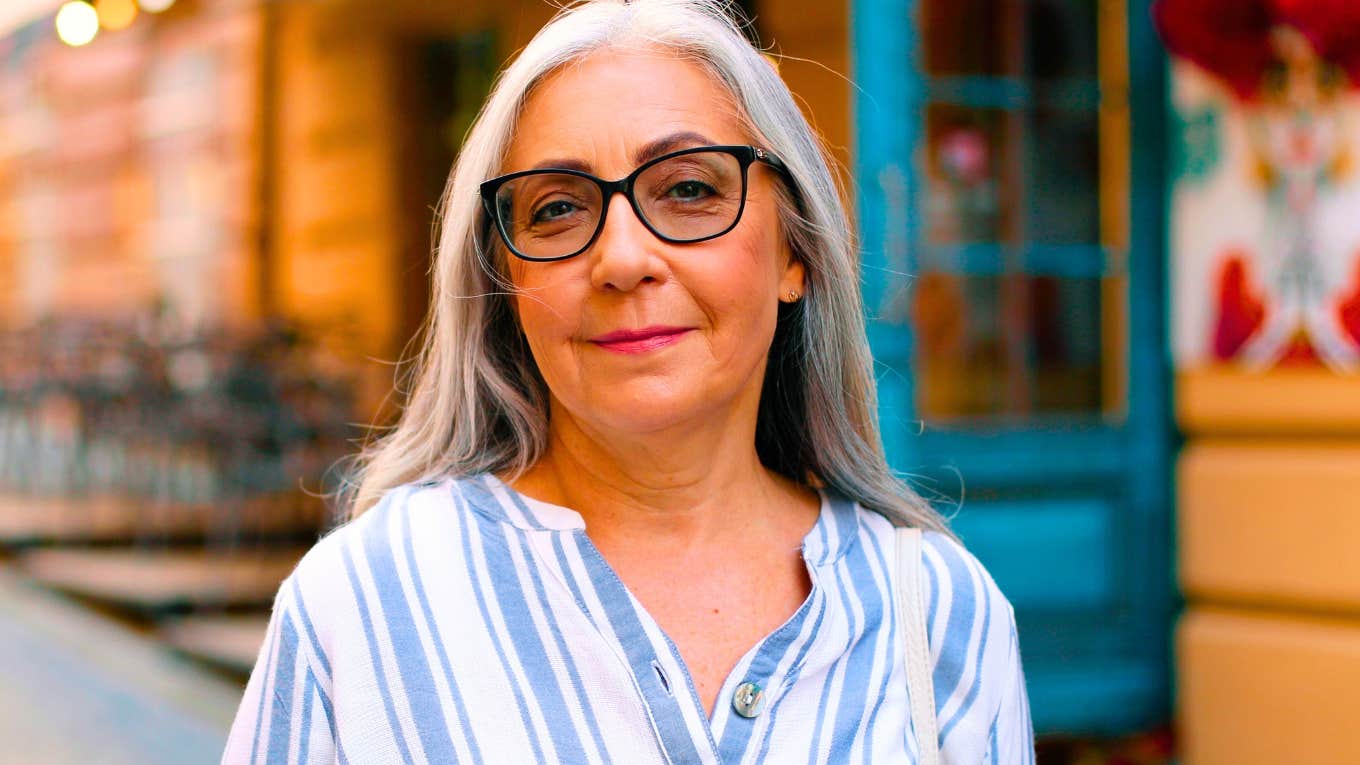11 Things High Value People Stop Liking The Older They Get, According To Research
High-value people dislike anything that hinders the relationship they have with themselves.
 My Agency / Shutterstock
My Agency / Shutterstock A high-value person values their time and their own self-worth. They will likely stop behaving in ways that do not positively contribute to the passions they have, as well as their overall well-being. As they grow older, they will begin to dislike things that hinder them from reaching their full potential.
If certain kinds of behaviors or interactions with others make it difficult for them to maintain their well-being, their strong sense of self, or hinder their ability to pursue and achieve goals, they will remove these individuals from their lives and focus solely on things that positively aid them. If a person stops liking these things, they may be considered a high-value person.
These are 11 things high value people stop liking the older they get, according to research
1. Arguing with others
 MDV Edwards / Shutterstock
MDV Edwards / Shutterstock
High-value individuals are likely to stop liking and getting involved in arguments with others as they get older. These people have developed a deep sense of emotional well-being and have learned how to regulate their emotions.
Instead of lashing out at other people when they feel a rush of emotions, they are able to sit back and manage their emotions in a more effective way. High-value people are very focused on their well-being and typically do what they can to keep things positive.
A 2010 study found that the ability to emotionally regulate is associated with well-being. Well-being makes it easier for individuals to accept certain emotions and be open to feeling them and managing them.
2. Being easily swayed by flattery or criticism
 Drazen Zigic / Shutterstock
Drazen Zigic / Shutterstock
High-value people typically develop a strong sense of self as they get older. They rely more heavily on internal validation than on feeling validated by others, which leads them to dislike being easily swayed by flattery or criticism.
“Those who are more internally validated gain a sense of self-worth based on their own thoughts, feelings, and opinions of themselves. They honestly reflect on their life and opportunities to feel more self-fulfilled. Sometimes this requires a conscious choice and awareness on being less externally focused and more internally balanced,” explains Kristen Hick, Psy.D., a licensed psychologist.
A high-value person has an internally accomplished feeling of satisfaction with themselves based on their internal feelings toward themselves.
3. Making decisions purely on feelings
 fizkes / Shutterstock
fizkes / Shutterstock
A person who is a high-value individual will likely dislike purely making decisions based on their emotions. As they have gotten older, they begin to understand what place emotions have in decision-making.
Moshe Ratson, a psychotherapist and executive coach in New York City, mentions that, “Emotions can act as a compass, pointing you toward what matters most to you and/or what aligns with your values. However, it is essential to avoid letting emotions dictate your decision-making. Make sure to balance emotional insights with logical reasoning.”
High-value people understand that letting their emotions act as a guide is fine, but their more logical views also have to play a part. In decision-making, they understand the balance of logic and emotions in determining what is best for their overall well-being.
4. Requiring external validation
 fizkes / Shutterstock
fizkes / Shutterstock
High-value people prioritize their self-worth and authenticity. Due to this, as they get older, they stop liking having to rely on external validation to feel good about themselves.
The development of their strong sense of self helps them to navigate relationships with others in a very genuine way. They remain true to themselves no matter what the other person thinks about them because the way that they feel about themselves is not dictated by the opinions and viewpoints of others.
5. Ignoring self-care
 PeopleImages / Shutterstock
PeopleImages / Shutterstock
A high-value person will constantly want to adapt habits that contribute to their resilience, performance, and overall well-being. Because of this, they will dislike having to ignore their self-care.
They are always actively working on their own personal growth. They understand what they need to improve themselves by being very in tune with their strengths and weaknesses. These kinds of people know that by prioritizing their self-care and being open to feedback, they will be more capable of reaching their full potential.
6. Disliking time alone
 fizkes / Shutterstock
fizkes / Shutterstock
High-value people are typically good at spending time alone and dislike avoiding solitude. Not only are they good at devoting this time to self-reflection and emotional regulation, but they also use it as time to continue boosting their self-esteem.
These kinds of people tend to know themselves very well because of their ability to embrace solitude. “One of the greatest benefits of spending time alone is that it can help you develop a better understanding of who you are. The better you know yourself, the more likely you are to do things that you love, learn things that interest you, and spend time with people who make you feel good,” according to The Jed Foundation, a nonprofit organization that helps protect the emotional health of young adults.
7. Not regulating their own emotions
 fizkes / Shutterstock
fizkes / Shutterstock
A part of what makes a high-value individual the way that they are as they get older is their ability to regulate and manage their emotions. They understand the endless benefits of being able to do this, and therefore stop liking not being able to regulate them.
One major quality that a high-value person possesses is self-confidence. It leads them to be able to stand up for what they believe in and remain true to themselves despite what everyone else thinks. Emotional regulation is what allows them to gain self-confidence.
“When you are emotionally regulated, you will lean more into what is true about you as a human being. You’ll learn to have the same amount of grace for your own weaknesses — likely the same amount that you give to others for theirs. You'll also give recognition to the value and strengths you bring,” mentions Jason Wilkinson, a couples and family therapist.
8. Being a people-pleaser
 PeopleImages / Shutterstock
PeopleImages / Shutterstock
High-value people tend to have a lot of self-respect and are very respectful of their own boundaries. Due to this, they do not like being a people-pleaser, especially as they get older.
People-pleasers will prioritize others over themselves often. They will be aware that doing what pleases someone else will negatively affect them, usually mentally or emotionally, yet they feel an internal obligation to do it anyway. High-value individuals do not feel this way. While they will help others when they can, they will not do it at the expense of their own values, priorities, and responsibilities.
9. Not respecting boundaries
 Sergey Nivens / Shutterstock
Sergey Nivens / Shutterstock
People who are considered high-value individuals are typically defined by their very high self-esteem and the high sense of self that they possess. This means that they are not interested in disrespecting their own boundaries or other people’s boundaries.
They will do whatever they need to to protect their well-being, and that usually means that they will set clear expectations and boundaries that they will not tolerate being disrespected. In order to stick true to their values and beliefs, they stand firm in their boundaries.
10. Not staying true to themselves
 Krakenimages.com / Shutterstock
Krakenimages.com / Shutterstock
As high-value people get older, they stop liking not staying true to themselves. They have likely started to realize that in order to be as authentic as they can and develop a deep sense of self-esteem, they have to remain true to themselves.
By aligning their behaviors and actions with their values, they are able to live in a way that is conducive to keeping them authentic and developing their self-esteem. Usually, with age comes a better understanding of oneself, so this is typically why authenticity and staying true to oneself become more important to them as they get older.
11. Not pursuing passions or goals
 PeopleImages / Shutterstock
PeopleImages / Shutterstock
High-value people have a deep need for purpose. As they get older, this need typically makes them not like to pursue passions or goals.
By not pursuing their passions and goals, they would risk feeling empty and disconnected from their identity, so it is unlikely that they would ever choose to ignore the things that would make them feel more fulfilled. While not all high-value people choose not to like these things, most do because they understand the negative way it would impact them if they participated in certain behaviors that do not aid in developing themselves for the better.
Kamryn Idol is a writer with a bachelor's degree in media and journalism who covers lifestyle, relationship, family, and wellness topics.

